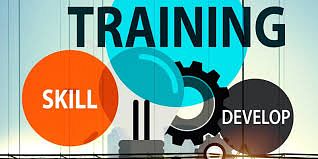Indian National Mathematics Olympiad (INMO)
June 13, 2025

A version of this piece was featured in Food Tank’s newsletter, released weekly on Thursdays. To make sure it lands straight in your inbox and to be among the first to receive it, subscribe now by clicking here.
Some of the most transformative food policy is coming from cities and municipalities across the world.
City-focused food policy is more urgent now than ever. More than half the world’s population lives in cities—and that number is only expected to grow, according to the Milan Urban Food Policy Pact. They estimate that, by 2050, 70 percent of the world could live in urban areas.
And we don’t need to wait decades or even years to see results.
Food Forward NYC is a plan first created in 2021 for the next decade of New York City’s food policy. Just yesterday, the city released a two-year progress report, allowing folks to see what policy changes the city has passed so far—and to evaluate how well these interventions are working.
In support of Goal 1, to expand access to healthy and affordable food: A pair of Executive Orders signed last year ensures that city-run concessions vendors, advertisements and promotional materials only showcase healthful foods, and requires all food vendors comply with reporting requirements, so the City can understand where food comes from. Plus, a City program called the Cafeteria Enhancement Experience aims to make school lunchrooms more inviting, to boost adoption of school nutrition programs—and so far, 87 cafeterias have been transformed.
NYC Health + Hospitals announced plans to expand public health programs geared toward those with diet-related chronic conditions. The City also relaunched Groceries to Go, which allows members of NYC Care, New York’s low-income health care service, to access groceries at low or no cost.
In support of Goal 2, to create a food economy that drives broader growth: The City is cutting down on bureaucratic red tape to help small food entrepreneurs, helping business owners file taxes, and suspending surcharges on liquor licenses. In March 2023, Mayor Eric Adams announced the opening of a US$20 million center for sustainability-focused biotech at the Brooklyn Navy Yard.
In support of Goal 3, to build modern, efficient, and resilient supply chains: The City is recognizing the power of urban agriculture. The New York City Housing Authority (NYCHA) is investing in urban farms on its properties and recently appointed Qiana Mickie as the City’s first Urban Agriculture Executive Director. NYCHA’s youth development program also runs nine farms and is planning to add six more by 2025.
New York is also investing in local food infrastructure like Hunts Point Produce Market in the Bronx, which is getting US$130 million to modernize and remain competitive.
In support of Goal 4, to sustainably produce, distribute, and dispose of food: The Mayor’s Office on Climate and Environmental Justice released the City’s first integrated greenhouse gas inventory—measuring emissions from New Yorkers’ consumption of goods, services, transportation, food, and housing.
By 2030, New York has committed to reducing the carbon footprint of the food it purchases by 33 percent. Plus, the City recently rolled out its first borough-wide organics collection program and expanded composting in NYC schools and older adult centers.
In support of Goal 5, to support the systems and knowledge needed to implement the plan: The Mayor’s Office of Food Policy and the Department of City Planning have convened The NYC Regional Food Working Group, which meets quarterly. And a new effort called MY City brings several agencies together to connect eligible New Yorkers with public benefits like SNAP and WIC.
All of these incremental changes can add up to major progress on urban food policy. And with greater collaboration, cities are sharing best practices to achieve stronger, more resilient local food systems.
The Milan Urban Food Policy Pact helps unite city leaders to transform their food systems, build urban-rural connections, and fight the climate crisis. The Pact is an international agreement of Mayors that serves as a concrete working tool for cities around the world.
More than 200 cities have signed the Milan Urban Food Policy Pact, including Accra, Ghana; Baltimore, Maryland; Bangkok, Thailand; Lima, Peru; Melbourne, Australia; and Nairobi, Kenya.
The global network C40, too, is bringing cities together to confront the climate crisis. Mayors of nearly 100 cities have signed on to embrace inclusive, science-based, and collaborative approaches to cutting greenhouse gas emissions in half by 2030. And through the C40 Good Food Cities Accelerator, 16 cities around the world have committed to achieving a Planetary Health Diet through better food procurement and fighting food waste.

June 13, 2025

June 13, 2025

June 13, 2025

June 13, 2025

June 13, 2025

June 13, 2025

June 13, 2025

June 13, 2025

June 13, 2025

June 13, 2025